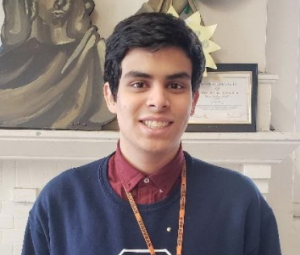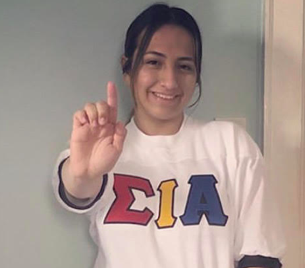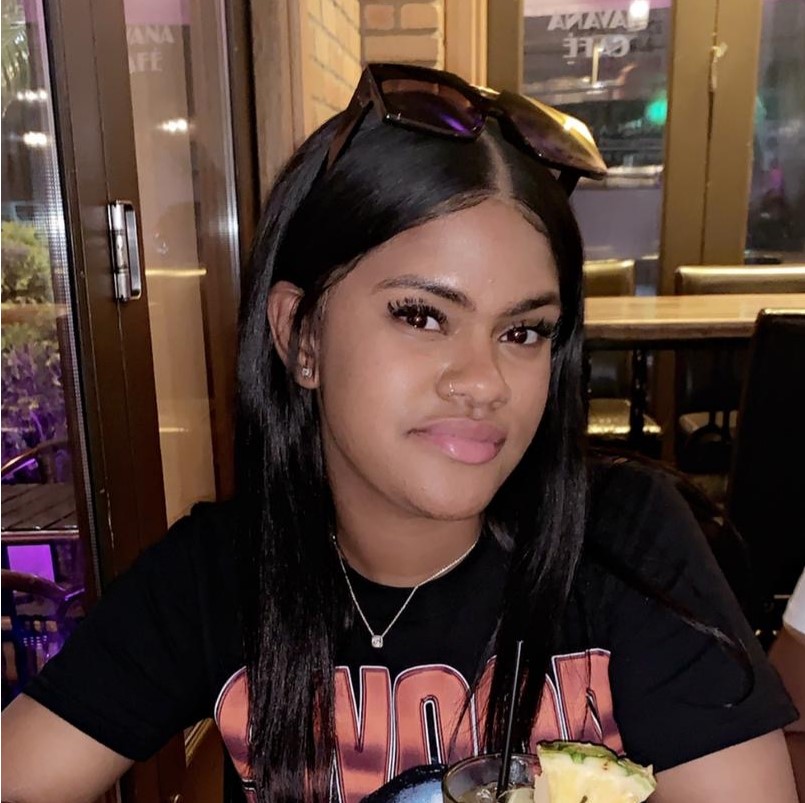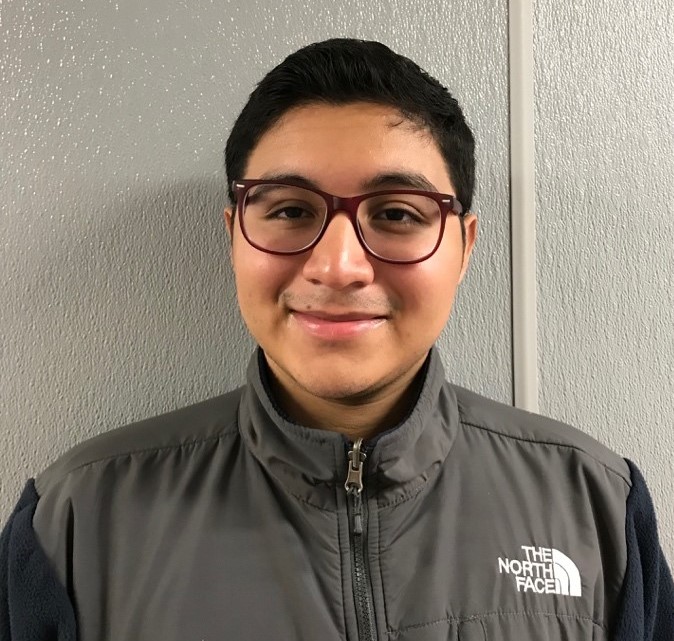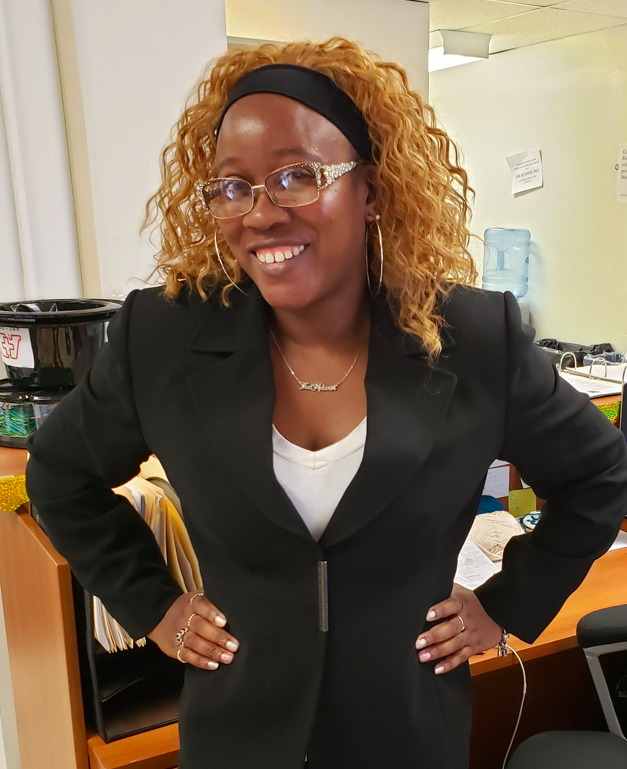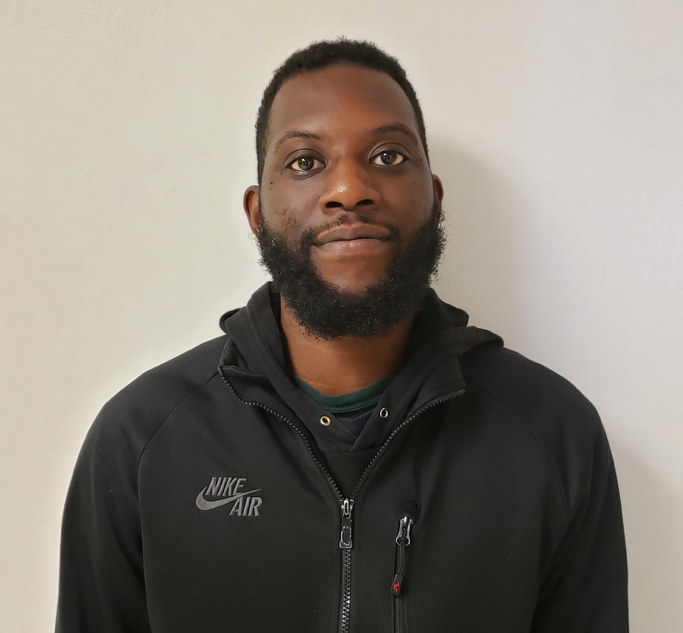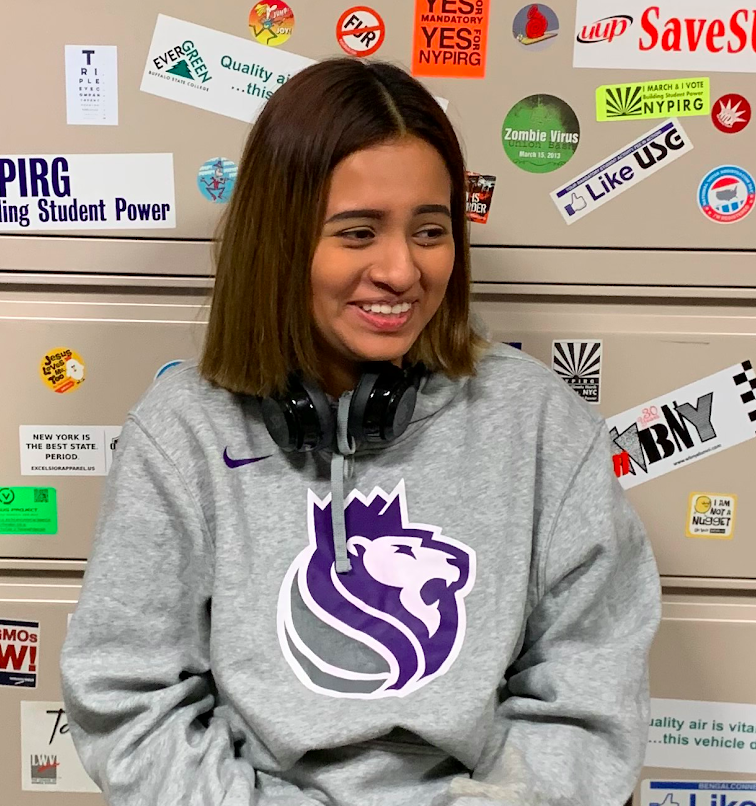Posts Tagged ‘textbooks’


I’m currently a senior studying Psychology at SUNY Cortland. After graduation, I am going to attend graduate school and then begin a career as a school psychologist. In order to pay for school, I rely upon my own financial resources. My mother helps me, but I only receive a small amount of financial aid. I do not receive any grant money, like TAP or Pell, and I do not qualify for support programs that may assist me financially. When it comes to costs like textbooks and college fees, I pay for it out of pocket. I work regularly at a daycare center to pay for my food costs.
I love college; I love its structure, which encourages me to do well in school. But college students struggle enough already, and SUNY schools should be fully funded because not every student can afford the costs of higher education and that’s something they shouldn’t have to worry about. The biggest challenge for me was the COVID-19 pandemic. It’s made my senior year very difficult to enjoy. Outside of that, some other challenges include having an inadequate adviser, who didn’t recommend the right things that I should be doing as far as my academics. I love SUNY Cortland and I want to see the right changes happen here even after I graduate.


I’m a freshman at Syracuse University studying Economics, and I am originally from the Bronx, NY. I decided to attend Syracuse because of all the opportunities available to make connections and build skills for my life after I graduate. Most employers believe that a bachelor’s degree is the same as what a high school diploma is now, and that means we need to build up our resumes so much while also being full-time students. I’m blessed enough to be able to receive part of my costs paid for by private scholarships as well as Pell Grants and a TAP reward, but I’ve still been forced to take out thousands of dollars in loans per year. I still don’t understand why I was forced at 18 to make a decision about going into debt for the next three decades in order to attend the college I wanted to.
I was only able to afford textbooks and some of my personal costs for the past 2 semesters by working at a full-time internship over the summer, and even then I had to use my loan refund to pay for the rest in the Spring. Having to pay an additional $1000 for one year’s worth of textbooks wasn’t something that I was prepared for as an incoming Freshman, and I don’t know how other students who aren’t able to save as much can pay for them. Going forward, I’m extremely worried about cuts to financial aid programs such as TAP and the Pell Grant program because there is no way I’d be able to continue to attend Syracuse without that help. Even though we are a private school, Syracuse students rely on assistance from our state government to be able to afford an education and help out our families after we graduate, instead of taking out even more loans and going deeper into debt.


I’m currently a junior studying Sociology at SUNY Cortland. After graduation, I hope to attend graduate school near home and to find a part-time job. I receive scholarship help like TAP and Pell Grants. I support myself financially, so I work during my summers and during the school year to pay for textbooks and to pay for my food costs because I don’t receive any support for food like SNAP.
I am very thankful as a first-generation student to be able to go to college. College is still expensive even with all these financial aid grants, but everyday I work hard to be a better person and make my parents proud, so at the end of the day everything is worth it.
If SUNY were fully-funded, then students could focus on classes. Financial stability for some students can be very stressful which can impact how they do in school. One of the biggest challenges was adjusting to the distance from Cortland to my hometown and fitting in, since Cortland does not have a very big Latin community.


I am majoring in Liberal Arts at BMCC and this is my second year at the school. I have taken an interest in business and accounting and after I graduate I plan on pursuing an internship in those fields.
I am one of the many CUNY students who heavily relies on TAP and the Pell Grant to pay for school. I was also a part of BMCC’s College Discovery program which helped me pay for my textbooks. To provide for myself and assist my family, I work a part time job. My biggest challenge as a CUNY student has been not being able to make use of the resources we have, such as tutoring, because my work schedule would not allow it. My financial struggles have made it quite difficult to graduate on time.
As a working class student, I live with the fact that if it were not for federal assistance I would not be pursuing a college degree right now. Education is not a privilege, it is a right. If people are required to have a degree to make a decent living then education should be more accessible. Most CUNY students are working class students. CUNY deserves better funding so it can continue to provide, improve, and expand services like the childcare center. We deserve the right to an education and better future.


I’m a sophomore, majoring in history and most interested in focusing on European history, specifically around the world wars. I’d like to pursue a master’s degree and eventually become a professor. It was my high school history teacher who inspired me to get into history; they were particularly good at connecting historical events to current events of today in a fun, relatable way.
I’m currently paying for tuition through TAP, with my parents supplementing out-of-pocket costs to cover the leftover tuition, textbooks, and school fees. I’m the fourth student in my family, with three older siblings, who attended out-of-state schools, took out loans to pay for tuition, and are now paying off their debt.
This is stressful for our family, as the cost of paying for school out-of-pocket and the cost of paying off debt becomes a family challenge. For me in particular, I feel the stress of considering balancing full-time school and part-time work to help alleviate the stress on my family’s budget.
As far as the biggest challenge paying for college? Textbooks. I have to weigh the pros and cons of buying each book individually; I play a complicated guessing game to determine which books will be necessary for which classes in order to be successful while saving money. This is a familiar game among many undergraduate students. How do I get an A without breaking the bank? Students should never have to go without textbooks—a key component in receiving the education we’re already paying for—in order to conserve money needed to get by.
Ultimately, my goal is to receive two degrees from Queens College while taking on as little financial burden as possible and being connected to stable career opportunities, and I don’t think that’s too much to ask for.


I am a senior at Queens College majoring in film studies and English. I love to analyze stories in books and movies so that informed my choice of major. I receive the Federal Pell Grant and TAP as part of my financial aid. I try to save some money by getting books from the library, but for textbooks, my bill can climb into the hundreds. Big science and anthropology textbooks have been the most expensive for my required classes. And often, when you get to major courses, they ask for books that are rare to find, and ordering them online takes a long time. Textbooks eat up a lot of my financial aid refund that I could use on living expenses.
One semester, I was late applying for aid through FAFSA. When I was finally able to apply, I accidently applied for the wrong year. As a result, I owed the College money when my registration appointment came, and I couldn’t register. I had to pay down my balance before I could create my class schedule for the next semester. With the help of my parents, I was able to do this, but I don’t know what would have happened if they weren’t there to help me. Mistakes happen, and someone’s education shouldn’t be put on hold as a result.
I feel that offices at my college could communicate more with students about problems with their accounts so that the students can fix the problems before it’s too late. This could be done through email or having more effective campus outreach. These offices could use more funding for these programs and resources to fix infrastructure issues all over the school. Social services on the campus could also be improved, and the course selection widened, especially for smaller majors.


Credit-wise I’m a senior, but I will be here until 2021. I would like to go to law school, but I can’t afford to pay for LSAT exam, which is a couple hundred dollars. I came from the Fashion Institute of Technology graduating with a major in pattern-making technology. Then I went to John Jay where I got my Bachelors in English and minor in Law, and now I’m studying at City Tech as a Law and Paralegal major. I continued to go to school thinking that TAP would cover it because they didn’t tell me that they only cover four years of school. I pay for school through student loans now.
My parents pay for my textbooks, I receive SNAP for food, and I am concerned about graduating on time. Tuition is going up, and I can’t afford it, which means I can’t take full amounts of classes like I want to. I had to go part-time at one point because I couldn’t afford to take full-time credits.
I got sick senior year of my first bachelors, so I had to take a semester off, and then I had a miscarriage so I took another semester off, and what they don’t tell you is that they count those semesters off as part of the 4 years of TAP.
I really need the prices to come down because I’m a single parent with a 14 year-old daughter, and I’m trying to make ends meet. I’m trying to further my career, but it’s too expensive.


I am majoring in law and paralegal studies at City Tech, and it is my 5th year. I want to go to law school after college and then run for the NY Senate, and you never know where else I may end up. I feel like the route taken by most politicians is going to law school and then end up being politically active.
Financial aid covers most of my costs, but I have to pay some out of pocket— approximately $500 to $1000. Before City Tech, I attended various universities, private and public, and saw how the financial aid system worked in those schools. It’s when I got to City Tech that I saw the deficiencies in the system.
I receive TAP and Pell, and it’s not enough to cover my tuition costs, and my parents don’t have the money necessary to adequately fund my higher education. I have three other siblings that are attending college and one that is in 12th grade, looking at colleges now.
I have to go on a deferred payment plan and have been dropped from a course because I didn’t have the money to pay on time. You only have the week from the start of the semester to apply for the deferred payment plan, and if you miss that, you have to pay the amount in full. I was lucky that I called the financial office and asked if there was an alternative to paying all at once.
How do other students find out about this if one has to call to find out about these alternative options? I personally told a number of students that the deferred payment plan was an option, instead of dropping out all together and losing a semester of coursework. They were not aware of this.
Financial aid usually pays for textbooks, but I have to pay out of pocket before the money comes in, which is usually the mid-point, or at the end of the semester. My parents pay for food. If I didn’t receive financial aid, it would be nearly impossible for me to go to school. I am concerned about graduating on time, especially since they’ve said I exhausted my financial aid.
We need a fully funded CUNY, so more people who don’t currently have access to higher education are able to gain access and not be held back socially or economically. That should be the goal. Prospective college students should only have to focus on their schoolwork, instead of on how they will be able to pay for their next semester of college.


While I’ve been lucky enough to have family members that have the means to support me through school, tuition and fee hikes have taken a major toll on my friends. Almost everyone I know is taking a full load of science classes that include lab sessions. They all have to work long hours.
Because we are majoring in hard sciences, textbooks can easily be over a thousand dollars a semester on top of rising tuition costs. We’re expected to either pay now or take out tens of thousands in loans that we can pay if we get jobs after college. This makes it stressful to just be a student because getting a well-paying job is so important.
We’re supposed to be the ones protecting our planet and developing new technologies to fight climate change, but how can we do that if learning how to do that is so difficult? Almost everyone I know talks about how worried they are about their future post-graduation.
I’m also extremely worried about the SUNY system because I have a younger brother and sister who will both be going to college in a few years. If the economy tanks, and my parents lose their jobs, what are my siblings supposed to do? They haven’t been able to save for themselves because they’ve been brought up thinking that they’ll be okay. But if school keeps getting more expensive, I’m not sure what they’ll be able to do.


I am a freshman at Buffalo State. I am a political science major from Queens, NY. I came to Buffalo State planning on majoring in political science because I’ve always been interested in politics and watch the news a lot, though it was comedy shows like the Daily Show that first got me into politics. I want to go to law school so I can practice public interest law, serving clients who can’t afford a lawyer. This means, of all my siblings, I will be the odd one out—the only non-accountant!
I went to the High School of Environmental Studies in Manhattan, where the emphasis was on environmental science. That got me interested in environmental studies. I decided on Buffalo State because I definitely didn’t want to stay in the city for college and wanted a change of scenery so I could focus on studying.
As a freshman, textbooks have been a concern because, even though rentals are sometimes an inexpensive options, it’s first come first served. The bookstore is almost always out of rentals when I go to buy them, which means I have to pay full price. Luckily this term, I managed to get a few rentals for $130, but many classes have multiple books that are hardly ever used. You can’t really tell what books you’re actually going to need, and it becomes an expensive guessing game.
I am not working at the moment because, even though I qualify for federal work-study, there aren’t nearly enough on-campus jobs for all the students who qualify. That means I have to look for off-campus jobs. Given Buffalo weather and not having a car, my choices are limited. It’s important to have a job because of how expensive college life is.
With TAP and all the scholarships I received, I still pay about $5000 toward tuition per semester. My family is paying these costs out of pocket, and I currently can’t register because I haven’t paid for the previous term. I can’t even look at my GPA if I wanted to transfer because everything is frozen until I pay. Courses for my major could get filled before I have time to pay up and register. Financial aid advising needs to be clearer so students know where they stand.
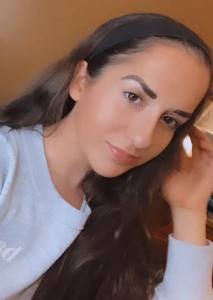

 MENU
MENU